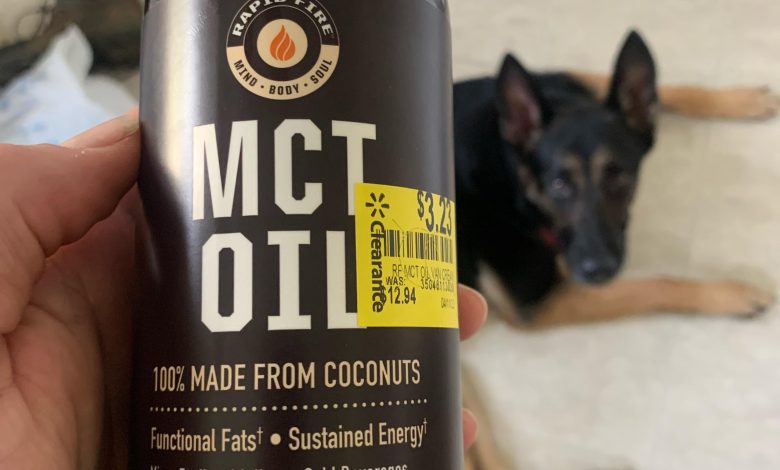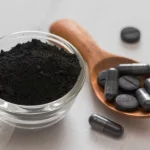MCT Oil: Uses, Benefits, Dosage, Side Effects, Dangers, Best Rated

MCT Oil stands for Medium Chain Triglyceride Oil. It is a type of dietary supplement that is derived from coconut oil or palm kernel oil. MCT oil is a type of saturated fat that is metabolized differently in the body than other types of fats.
MCT oil is composed of medium-chain fatty acids, which are shorter than the long-chain fatty acids found in other types of fats. These medium-chain fatty acids are rapidly absorbed and metabolized by the liver, which makes them a quick source of energy.
The history of MCT oil dates back to the 1950s when researchers first began studying the health effects of different types of fats. In the 1960s and 1970s, researchers discovered that MCTs, which are found naturally in coconut oil and palm kernel oil, were metabolized differently in the body than other types of fats.
MCTs were found to be rapidly absorbed and metabolized by the liver, which makes them a quick source of energy. This led to the development of MCT oil, a dietary supplement that contains concentrated amounts of MCTs.
Initially, MCT oil was used in medical settings to treat conditions such as malabsorption disorders and epilepsy. MCT oil was found to be a useful tool in the ketogenic diet, which is a high-fat, low-carbohydrate diet that has been used to treat epilepsy since the 1920s. MCT oil was used to help increase the amount of ketones in the blood, which is the goal of the ketogenic diet.
In the 1980s and 1990s, MCT oil began to gain popularity as a dietary supplement for athletes and bodybuilders. MCT oil was touted as a way to increase energy levels, improve athletic performance, and reduce body fat.
Today, MCT oil is widely available as a dietary supplement and is used by people for a variety of reasons, including weight loss, improved cognitive function, and better athletic performance. While more research is needed to fully understand the health effects of MCT oil, it remains a popular supplement for those looking to improve their health and well-being.
Benefits of MCT oil
While MCT oil has gained popularity in recent years, its potential health benefits have been studied for decades. Here are some of the potential benefits of MCT oil:
1. Weight loss: MCT oil has been shown to increase feelings of fullness and decrease appetite, which can lead to reduced calorie intake and weight loss. A study published in the American Journal of Clinical Nutrition found that MCT oil increased fat burning and reduced body weight and body fat in overweight men.
2. Improved cognitive function: MCT oil has been shown to improve cognitive function in individuals with cognitive impairment and Alzheimer’s disease. This may be due to the fact that ketones produced from MCT oil can provide an alternative energy source to the brain, which may be beneficial for those with impaired glucose metabolism.
3. Better athletic performance: MCT oil has been shown to improve exercise performance and increase endurance in athletes. A study published in the Journal of Nutritional Science and Vitaminology found that MCT oil supplementation improved time to exhaustion during high-intensity exercise in trained cyclists.
4. Improved lipid profile: MCT oil has been shown to improve lipid profiles, including reducing total cholesterol, LDL cholesterol, and triglycerides. A study published in the Journal of the Academy of Nutrition and Dietetics found that MCT oil supplementation reduced total cholesterol and LDL cholesterol in overweight women.
5. Reduced inflammation: MCT oil has been shown to have anti-inflammatory properties, which may be beneficial for individuals with chronic inflammation. A study published in the Journal of Parenteral and Enteral Nutrition found that MCT oil reduced markers of inflammation in critically ill patients.
6. Improved gut health: MCT oil has been shown to have antimicrobial and antifungal properties, which may be beneficial for gut health. A study published in the Journal of Lipid Research found that MCTs reduced the growth of harmful bacteria in the gut.
7. Improved insulin sensitivity: MCT oil has been shown to improve insulin sensitivity in individuals with type 2 diabetes. A study published in the American Journal of Clinical Nutrition found that MCT oil improved insulin-mediated glucose metabolism in individuals with type 2 diabetes.
8. Reduced risk of cardiovascular disease: MCT oil has been shown to improve cardiovascular risk factors, including reducing blood pressure and improving arterial function. A study published in the Journal of Nutrition and Metabolism found that MCT oil reduced blood pressure in individuals with hypertension.
9. Increased energy levels: MCT oil provides a quick source of energy and has been shown to increase energy levels and reduce fatigue. A study published in the International Journal of Food Sciences and Nutrition found that MCT oil improved mood and energy levels in healthy adults.
10. Improved skin health: MCT oil has been shown to have moisturizing and anti-inflammatory properties, which may be beneficial for skin health. A study published in the Journal of Investigative Dermatology found that MCTs improved skin barrier function and reduced inflammation in mice.
MCT oil also has a variety of potential benefits for seniors, including:
1. Improved cognitive function: MCT oil has been shown to improve cognitive function in older adults. This is because MCTs are metabolized differently than other types of fats and can provide a quick source of energy to the brain.
2. Increased energy levels: MCT oil can provide a quick source of energy and may help improve overall energy levels in seniors. This can be particularly beneficial for those who struggle with fatigue or low energy levels.
3. Better digestion: MCT oil is easily digestible and can help seniors who struggle with digestive issues such as constipation or bloating. MCTs have also been shown to help improve the absorption of nutrients, which can be beneficial for seniors who may have difficulty absorbing nutrients from their food.
4. Weight management: MCT oil has been shown to help with weight management by reducing appetite and increasing feelings of fullness. This can be particularly beneficial for seniors who may be at risk for obesity or weight-related health issues.
5. Improved heart health: MCT oil may help improve heart health by reducing cholesterol levels and improving blood lipid profiles. This can be particularly beneficial for seniors who may be at risk for heart disease or other cardiovascular issues.
It is important to note that while MCT oil has many potential benefits for seniors, it is always recommended to consult with a healthcare provider before starting any new supplement regimen. This is especially important for seniors who may be taking medications or have pre-existing health conditions that could be affected by MCT oil supplementation.
MCT Oil Dosage
The appropriate dosage of MCT oil depends on a variety of factors, including age, weight, and overall health status. It’s important to consult with a healthcare provider before adding MCT oil to your diet to determine the appropriate dosage for your specific needs.
In general, it is recommended to start with a small dose of MCT oil, such as 1 teaspoon (5 mL) per day, and gradually increase the dosage over time. This can help prevent gastrointestinal side effects, such as nausea and diarrhea, which can occur when too much MCT oil is consumed too quickly.
For weight loss, some studies have used doses of up to 30 grams (about 2 tablespoons) of MCT oil per day, while others have used doses as low as 10 grams (about 2 teaspoons) per day.
For improved cognitive function, doses ranging from 20 to 70 grams (about 1 to 4 tablespoons) per day have been used in studies.
It’s important to note that MCT oil is high in calories, with 1 tablespoon (15 mL) containing approximately 100 calories. Therefore, it’s important to use MCT oil in moderation and to account for the calories in your overall diet.
Again, it is important to talk to a healthcare provider before adding MCT oil to your diet to determine the appropriate dosage for your specific needs and to make sure it is safe for you to use.
Best time to take MCT oil
The best time to take MCT (medium-chain triglyceride) oil can vary depending on your individual needs and goals. Here are a few suggestions:
- Before exercise: Taking MCT oil before exercise can provide a quick source of energy and may help improve athletic performance. MCTs are easily metabolized by the body and can be used as fuel during exercise.
- With meals: Adding MCT oil to your meals can help increase feelings of fullness and may help reduce overall calorie intake. MCTs have also been shown to improve the absorption of nutrients, so taking MCT oil with a meal can help improve nutrient absorption.
- Between meals: Taking MCT oil between meals can help provide a quick source of energy and may help reduce cravings or hunger pangs. MCTs are easily metabolized by the body and can provide a quick boost of energy without the need for additional calories.
- In the morning: Taking MCT oil in the morning can help provide a quick source of energy to start the day. MCTs have also been shown to improve cognitive function, so taking MCT oil in the morning may help improve mental clarity and focus.
It is important to note that while MCT oil can be taken at any time of day, it is recommended to start with a small dose and gradually increase the amount as needed. It is also important to consult with a healthcare provider before starting any new supplement regimen, especially if you have pre-existing health conditions or are taking medications.
Dangers of MCT oil
While MCT oil is generally considered safe for most people, there are a few potential dangers to be aware of:
1. Digestive issues: MCT oil can cause digestive issues such as nausea, vomiting, diarrhea, and abdominal cramping in some people, especially when consumed in large amounts. It is recommended to start with a small amount and gradually increase the dose to minimize the risk of digestive issues.
2. Risk of liver damage: High doses of MCT oil can cause liver damage in some people. This is more likely to occur in individuals with pre-existing liver problems or those who consume large amounts of alcohol.
3. Increased calorie intake: MCT oil is a high-calorie supplement that can lead to weight gain if consumed in excess. It is important to monitor your calorie intake and ensure that you are not consuming more calories than your body needs.
4. Allergic reactions: MCT oil is derived from coconut oil and can cause allergic reactions in people who are allergic to coconuts. Symptoms of an allergic reaction may include hives, itching, swelling, and difficulty breathing.
5. Interference with medication: MCT oil may interfere with certain medications, including those used to treat diabetes, high blood pressure, and thyroid disorders. It is important to consult with a healthcare provider before using MCT oil if you are taking any medications.
It is important to note that the dangers associated with MCT oil are generally rare and most people can safely consume it as a dietary supplement. However, it is always recommended to consult with a healthcare provider before starting any new supplement regimen.
Side Effects
While MCT oil is generally considered safe for most people, some people may experience side effects when consuming it. Here are some potential side effects of MCT oil:
1. Digestive issues: MCT oil is rapidly absorbed by the body, which can cause digestive issues such as bloating, gas, and diarrhea, especially when consumed in large doses or when first introducing it to the diet.
2. Allergic reactions: Some people may be allergic to MCT oil or to the plants from which it is derived, such as coconut or palm kernel.
3. Increased heart rate: MCT oil can cause a slight increase in heart rate, which may be a concern for people with certain heart conditions.
4. Interference with medications: MCT oil can interfere with the absorption of certain medications, such as blood thinners and cholesterol-lowering drugs, so it’s important to talk to a healthcare provider before using MCT oil if you are taking medication.
5. Increased ketone levels: While some people may use MCT oil to increase their ketone levels for therapeutic purposes, high levels of ketones in the blood can be dangerous for people with certain medical conditions, such as diabetes.
It’s important to note that these side effects are generally mild and temporary, and most people can safely consume MCT oil without experiencing any negative effects. However, if you experience any of these side effects or have any concerns about using MCT oil, it’s important to talk to a healthcare provider.
Interactions
MCT oil can interact with certain medications, so it’s important to talk to a healthcare provider before using MCT oil if you are taking any medication. Here are some examples of medications that may interact with MCT oil:
1. Blood thinners: MCT oil can interfere with the absorption of blood thinners such as warfarin, leading to decreased effectiveness of the medication.
2. Cholesterol-lowering drugs: MCT oil can interfere with the absorption of cholesterol-lowering drugs such as statins, leading to decreased effectiveness of the medication.
3. Diabetes medications: MCT oil can lower blood sugar levels, so it’s important to monitor blood sugar levels closely if you are using MCT oil in conjunction with diabetes medication.
4. Seizure medications: MCT oil can interact with certain seizure medications, such as valproic acid, leading to decreased effectiveness of the medication.
5. Thyroid medications: MCT oil can interfere with the absorption of thyroid medication, leading to decreased effectiveness of the medication.
It’s important to note that these interactions are not necessarily harmful, but they can affect the effectiveness of the medication. If you are taking any medication, it’s important to talk to a healthcare provider before using MCT oil to determine if it is safe for you to use and to discuss any potential interactions.
Best-rated MCT oil
There are many different MCT (medium-chain triglyceride) oils available on the market, and the best-rated one can vary depending on individual preferences and needs. However, here are a few highly rated MCT oils based on customer reviews and expert opinions:
1. Sports Research MCT Oil: This MCT oil is made from organic coconuts and is non-GMO and gluten-free. It is highly rated for its quality and purity.
2. NOW Sports MCT Oil: This MCT oil is made from sustainably sourced palm and coconut oil and is non-GMO and gluten-free. It is highly rated for its affordability and effectiveness.
3. Onnit MCT Oil: This MCT oil is made from 100% pure coconut oil and is non-GMO and gluten-free. It is highly rated for its quality and taste.
4. Bulletproof Brain Octane Oil: This MCT oil is made from pure coconut oil and is highly rated for its effectiveness in providing quick energy and improving mental clarity.
5. Nutiva Organic MCT Oil: This MCT oil is made from organic coconuts and is non-GMO and gluten-free. It is highly rated for its quality and affordability.
It is important to note that while these MCT oils are highly rated, it is always recommended to consult with a healthcare provider before starting any new supplement regimen, especially if you have pre-existing health conditions or are taking medications.
How to Store MCT Oil
MCT oil should be stored properly to maintain its quality and prevent it from going rancid. Here are some tips for storing MCT oil:
1. Store in a cool, dark place: MCT oil should be stored in a cool, dark place, away from direct sunlight and heat sources. Exposure to light and heat can cause the oil to degrade and lose its nutritional value.
2. Keep the bottle tightly sealed: Make sure the bottle is tightly sealed to prevent air from getting in and causing oxidation of the oil.
3. Use a glass bottle: MCT oil should be stored in a glass bottle rather than a plastic one, as plastic can leach chemicals into the oil over time.
4. Refrigerate if desired: MCT oil does not need to be refrigerated, but refrigeration can help to prolong its shelf life and prevent rancidity. However, refrigeration can cause the oil to solidify, so it may need to be brought to room temperature or warmed slightly before use.
5. Check the expiration date: MCT oil should have an expiration date on the bottle, and it’s important to use it before the expiration date to ensure maximum freshness and quality.
By following these storage tips, you can help to ensure that your MCT oil remains fresh and effective for as long as possible.





